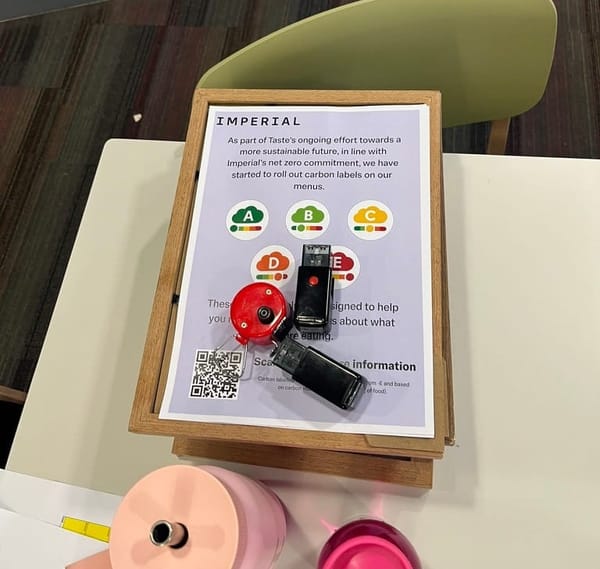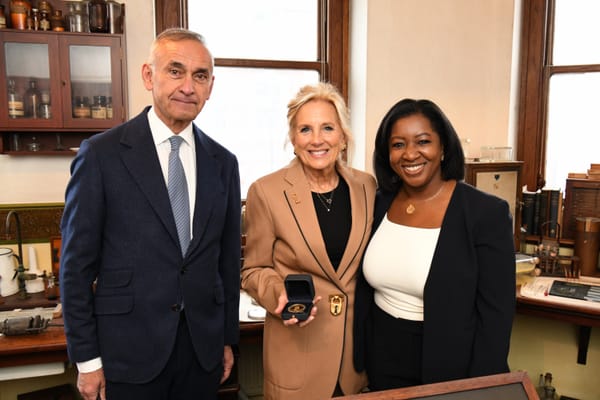Imperial to work with several of the largest fossil fuel companies
Despite decades denying science, Imperial’s new analysis finds giant fossil fuel companies are genuinely committed to net zero and wants to help.
Imperial recently released the first round of assessments under the Imperial Zero Index (IZI), which states which Fossil Fuel Companies (FFCs) they will continue working with.
The Index was announced in February 2024. As part of their aim for socially responsible engagement. Their “rigorous” methodology found that BP, Equinor, ExxonMobil, Petronas, Shell, TotalEnergies, and Woodside Energy were committed to a green transition. These companies have collectively emitted 8.74% of all fossil fuel and cement emissions since 1751, according to the Carbon Majors database.
The IZI assessments will be repeated annually. Imperial believes that FFCs are key to the energy transition and plans to work with ones which are committed to transitioning to sustainable energy. The Index also states that all projects must be aligned with the goals described in the 2015 Paris Agreement.

Imperial has also provided a methodology for the Index, where they assess each FFC’s performance based on seven metrics. Imperial did not share how any FFCs performed on the metrics, nor the cutoffs on those metrics that companies had to meet. They made only one ‘gateway metric’ compulsory for collaboration, which requires an “ambition to reach net zero no later than 2050.” Felix submitted a Freedom of Information request for the FFC’s performance across the metrics.
When asked if he would change anything about the methodology, Aaron Pereira, a researcher at Solid Sustainability Research and Imperial alum, told Felix, “I don’t know where to start” and called the methodology “unusable” as it is lacking essential details to make it reproducible. Solid Sustainability Research is an independent research bureau in the Netherlands which analyses the connections between academia and the Fossil Fuel Industry.
Imperial chooses not to work with the Tobacco industry because it harm our health, including on projects that might make smoking safer. However, this logic is not extended to the Fossil Fuel Industry.
Pereira compared Imperial’s process to a university in the Netherlands: “A good example is Erasmus University Rotterdam’s assessment procedure: it looks at companies’ projected emissions intensity for 2035 and 2050 (according to the Transition Pathways Institute) and their lobbying activity. Fossil fuel companies that don’t meet clear criteria fall under the ‘moral minimum’ and are excluded from collaborations. The assessment procedure was developed by people with knowledge of the industry but who don’t have ties or funding from it.”
BP, Equinor, Exxon, Shell, and Total are insufficient across all climate metrics, and grossly so across most of them, according to the latest Big Oil Reality Check. They are all grossly insufficient in stopping oil and gas exploration and new extraction, which goes against the International Energy Agency’s repeated statements that we must build no new oil and gas infrastructure to reach net zero in 2050. FFCs’ 2050 net zero commitments must surely be in line with this to be genuine. These FFCs also all insufficiently uphold human rights and Indigenous People’s rights.
Charlene Tai, President of Imperial’s Environment Society, told Felix, “to me it feels like the methodology is purposely choosing to ignore certain metrics which shows that a company is not serious about their transition to net zero, but rather picking out points that would make them seem like they are doing well.” She also pointed out a study the methodology cites which itself calls out BP, Exxon, and Shell for being all talk and concludes that “accusations of greenwashing appear well-founded.”
Prof Kevin Anderson, Climate Scientist at University of Manchester quoted the first paragraph of the methodology which states, “At Imperial, we believe that Fossil Fuel Companies (FFCs) have a key role to play in the energy transition”. He commented, “[This] is illustrative. Academic institutions should ground their analysis in evidence-based conclusions, not belief. Given the track record of FFCs in obstructing climate science and policy, and their ongoing expansion of fossil fuel production, it is difficult to justify a claim that they are central agents of credible and fair 1.5 and 2°C transition pathways. Corporate strategies remain wholly incompatible with the emissions trajectories required under the Paris temperature commitments.”
Pereira also commented on the ‘engagement for change’ strategy, saying, “In our research, we have seen no evidence that academics working with the fossil industry have been able to influence the industry towards a less harmful business model. On the contrary, we have evidence that the fossil fuel industry - like other health-harming industries - has a harmful influence on academia.”











